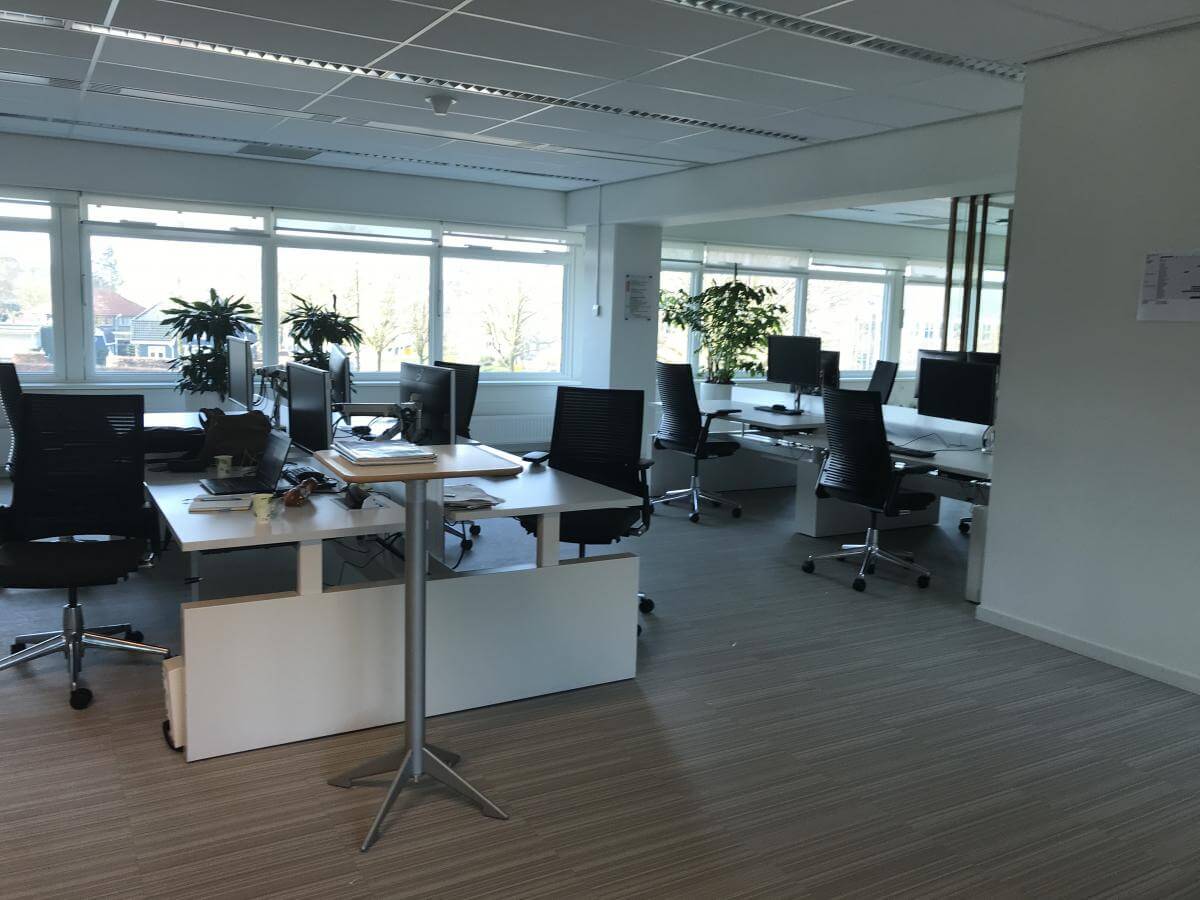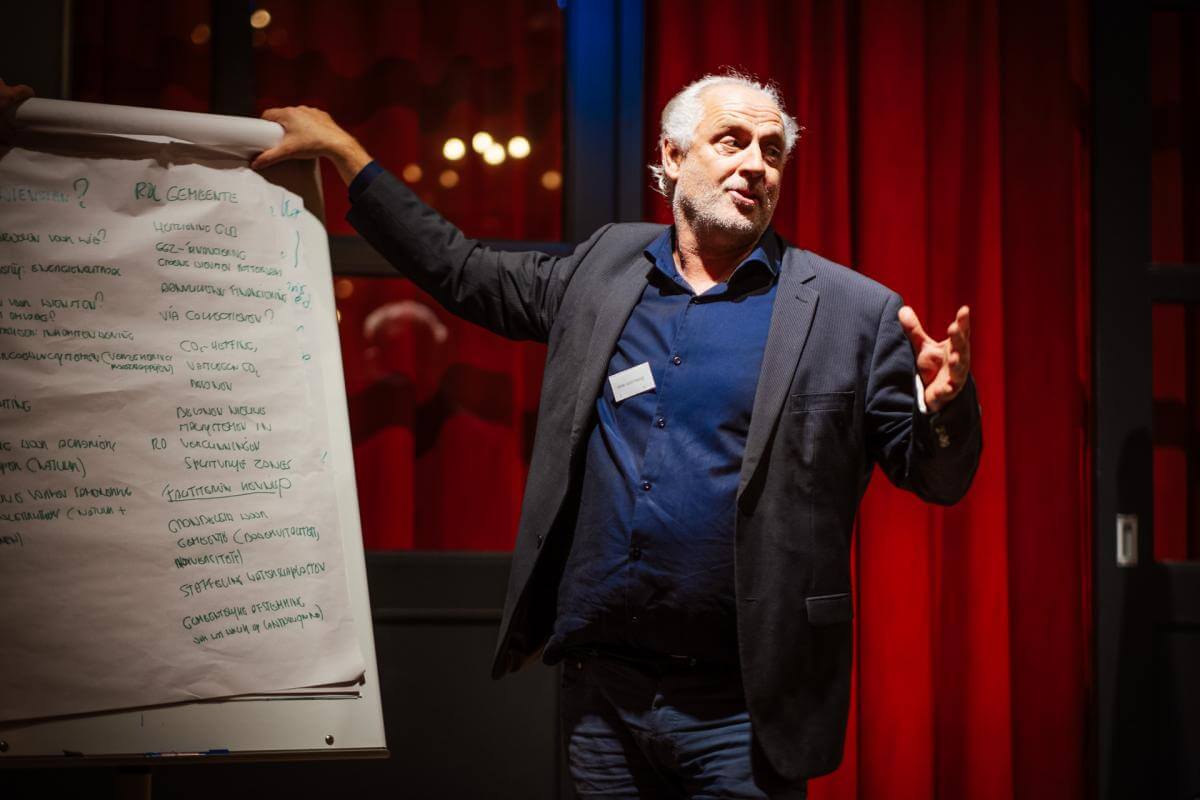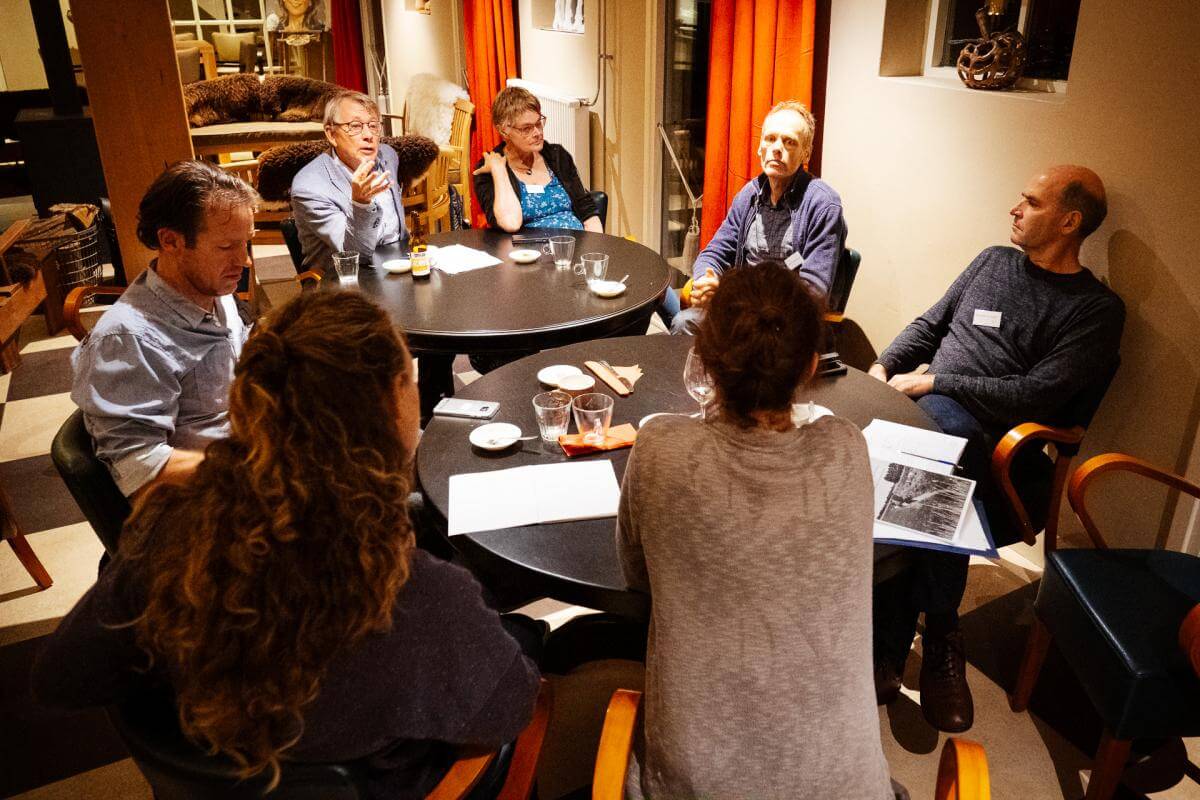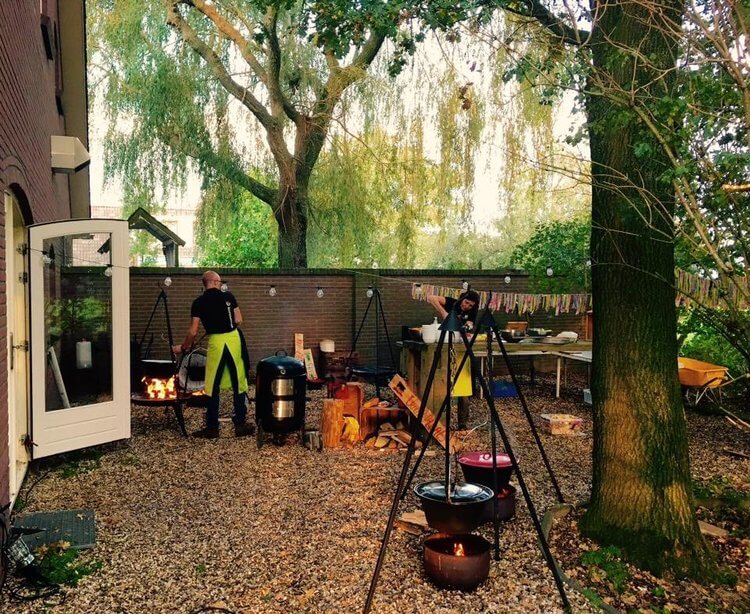Ede
Live Cases
Live Cases are a real-time journaling process for the Living Lab case studies. Follow along quarterly to learn more about the experiences and lessons learned taking place in the ROBUST Living Labs.
Live Case 5: Lessons Learned and New Governance Approaches
While cities around the world are increasingly developing food policies to realize healthier and more sustainable food systems, it remains unknown how cities evaluate what their policies lead to in practice.
In ROBUST, both Ede and Lucca were interested in this topic as cities working on food policy. As such, we started a study on food policy evaluation and monitoring together with our partners from the Lucca Living Lab.
Initially the idea behind this study was to compare monitoring and evaluation ideas and practices between Lucca and Ede. Due to Covid-19 though, we had to change the design of our study. We broadened the scope of our research and investigated the evaluation challenges experienced by all cities that have contributed to developing the Milan Urban Food Policy Pact monitoring framework.
We learned that the value from food policy evaluation seems to come predominantly from the evaluation process itself, and less from the actual outcome(s).
Such processual benefits include defining policy priorities and goals more clearly, providing an overview of data and data gaps, agenda-setting, generating political will, and strengthening connections between departments within the municipality and between the municipality and external stakeholders.
Key challenges in food policy evaluation are a lack of: clear goals, data, resources and capacity, and priority.
We show that local food policy-making could also benefit from using a universal indicator framework as a top-down blueprint, to more clearly define and concretize priorities – in contrast to the prevailing belief that good local food policy making is strictly a collaborative, bottom-up process in which place-based policy priorities are defined.
Working Together in New Ways
The Dutch countryside faces some serious problems, the least of which being eutrophication in nature reserves due to excessive nitrogen emissions from agriculture, transportation, and industry. European and national courts have prohibited all activities that increase these emissions throughout the country, including building activities. This is a national problem that has to be solved at the local scale.
In the rural parts of Ede (especially around the De Valk hamlet, where the people feel very responsible for their own surroundings and put a lot of energy in maintaining it), we are experimenting with a new governance approach.
We are convening all levels of government – state, water authority, province, and municipality – to work as one government to work with the inhabitants, farmers, and other entrepreneurs to solve not only the local eutrophication problem, but also other pressing issues, like climate adaptation, enhancing biodiversity, and improving the landscape.
The goal is to conduct this process in a balanced way to both protect the land and enable the local population to earn a living by farming or other forms of rural enterprise.
New business models in which farmers are, in one way or another, paid for delivering ecosystem services, short supply chains, and providing recreational use of rural areas are part of this approach. But we are also looking for even more innovative approaches, like re-allotment schemes, smart water management, and other solutions that we now cannot even conceptualize. We started this process in the ROBUST local workshop on November 5th 2020. This initiative will be further elaborated in the months to come and should eventually result in a joint approach for this area.
Live Case 4: New Directions in Ede
COVID-19 intervened in our Living Lab Ede at a moment we were having an internal discussion about how to align our Living Lab activity with the realities of municipal policy making. Our initial plan, as formulated in the Research and Innovation Agenda, was to experiment with a so-called “menu-card approach” as the municipality attempts to implement the national Environment and Planning Act (EPA), and incorporate different regional circular farming practices and perspectives.
This plan, however, was losing enthusiasm and support among municipal policy makers and administrators as they realized that their role in integrative policy making (as foreseen by national EPA framework) was more complicated than anticipated. Ongoing internal delays at the municipality about how to move towards a shared vision of Ede’s rural future made it premature to involve and consult stakeholders on a concrete policy tool, like the menu-card approach.
After an internal debate and discussion about how to move forward, we decided to align future living lab activity with ‘Enriching Agriculture’, a national project in which Ede municipality also participates. This project hinges on collaborative learning by stakeholders from different backgrounds, including science, policy, practioners and NGOs, around the systemic changes necessary for agro-ecological inspired sustainable agriculture.
Project activities involve various pilot regions, including De Valk, a sub-locality in Ede Municipality, and focus on special topics, like integrative water management, preservation of soil fertility and quality, and land access related limitations. As strongly suggested by municipal Living Lab members, collaborating with “Enriching Agriculture” activities would allow to keep more distance from EPA-related policy sensitivities.

With the exception of an “Enriching Agriculture” workshop in February on commoning approaches to mitigate the aforementioned land access problems, the next steps to re-orientate the living lab activity were rather suddenly and brutally interrupted by COVID-19.
From mid-March, the Netherlands, and thus Ede Municipality, faced what policy circles framed as “an intelligent lockdown”. This completely blocked our living lab activity in practice, as institutional and personal priorities dramatically shifted.
National lockdown restrictions from mid-March to the end of May limited ROBUST activities to participating in various virtual Community of Practice sessions on thematic progress and working on ongoing publication efforts. Only from early June onwards, when national lockdown restrictions were slowly eased, was it possible to continue our pre-COVID-Living Lab plans.
We started organizing the governance-oriented regional workshop as part of WP5, which is planned to take place in De Valk. Hosting the workshop here enables us to build on earlier ROBUST and “Enriching Agriculture” findings and networks, and align with ongoing multi-stakeholder collaborative learning and dialogue processes. Hopefully this workshop will not be disrupted by COVID-19 related limitations. The face-to-face workshop is scheduled immediately after the summer break for participants from different policy backgrounds, but we are planning a virtual conference if contact restrictions are reinstated.
Live Case 3: A Pivot to Circular Farming
In earlier Live Cases, we stated that we wanted to align ROBUST’s project logic with municipal EPA policy implementation progress. However, the EPA implementation process turned out to be more complex than foreseen and thus more time consuming. So we decided to focus on a particular theme which will undoubtedly be important once the implementation process of the EPA reaches a more practical stage. This theme is Circular Farming.
The Circular Farming notion was (re)introduced in 2018 by the national Ministry of Agriculture, Nature and Food Quality as an important guiding principle for sustainable farming practices. Circular Farming implications are far reaching, not only for rural areas but also for rural-urban relations. Discussions about the ideas of what circular farming is and how it can/must be implemented in policy documents and in practice are currently omnipresent throughout The Netherlands and particularly in the municipality of Ede.
Circular farming is an important theme in our ‘Regiodeal Food Valley’, a deal between the central government and the region that enables a variety of pilot projects that foster innovation and sustainability in agriculture and food production. The notion is a guiding principle in Ede’s Agricultural Vision and will undoubtedly be so once the EPA’s implementation becomes more practical. It is also seen as a promising answer to different environmental problems our region and country is dealing with, like the surplus of nitrogen deposition on nature reserves.
On the other hand, circular farming is controversial, as it requires traditional farming practices to transition to more sustainable models and will probably affect the number of cattle held and land use practices. Many entrepreneurs fear for capital destruction on traditional enterprises.
In our workshop, we focused on the following questions:
- How can regional rural-urban relations be enhanced through different circular farming ideas and practices?
- What types of territory-based approaches can realize such circular farming potentials?
- In which ways could /should Ede municipality facilitate and support such potentials?

Around 40 stakeholders, who were mobilised and recruited through the personal networks of our Living Lab members, were invited to the workshop with a short document explaining the principle ROBUST objectives. Those invitees that responded positively received additional information about how our LL understood circular farming, making a distinction between agro-industrial and agro-ecological lines of thought, each having its specific features, also in terms of rural-urban relations.
The overall response to our workshop invitations was positive. Our workshop was held on 9 October 2019 and was attended by 23 people, most representing the agro-ecological viewpoint. Unfortunately, the workshop took place during a time when Dutch farmers were conducting large-scale protests against forthcoming national adaptation of its nitrogen policy. This meant that stakeholders from the traditional farming sector were not willing to join the conversation (with a few exceptions).

In the lively discussions, the following topics were of particular interest:
- good soil management, as a basis for Ecosystem services, as well as for alternative business models
- the importance of the availability of land to foster good practices and new business models
- the importance of true pricing and alternatives way of renumeration for ecosystem services
- the importance of knowledge in very different aspects (for producers, consumers, policy makers, and for relations between different groups)
Our next challenge will be to translate these notions into practical policy recommendations for our own municipality.
Live Case 2: Refining the Research Agenda
As part of ongoing the Ede Living Lab matching processes (see our Live Case 1), we discussed our ROBUST Research and Innovation Agenda (RIA) with Ede’s Municipal Environment and Planning Act (EPA) Implementation Team. During this half-day meeting at the end of March 2019, in a beautiful and inspiring rural setting (www.dehooilanden.nl), we continued our ongoing exchange about how to put our RIA into practice.
In addition to the core EPA Implementation Team, we also involved other municipal policy makers who have leading and supporting roles in municipal EPA implementation.
This particular meeting enabled us to share ideas about how our RIA could contribute to the municipal EPA implementation trajectory. We first discussed the question, “Can and to what extent could our preliminary menu-card ideas (see below) help guide regional farming in the future?”
As argued, this would require an overarching vision for agriculture’s role in rural development and – even better – a broader vision for sustainable regional rural-urban relations.
The EPA Implementation Team challenged us to contribute more explicitly and directly to Ede’s agricultural and rural future as a crucial element of their implementation endeavour. They suggested using participatory scenario building as a supportive tool for future rural and agricultural envisioning in various sub-regions, and have already contacted a consultancy firm with ample (participatory) scenario building experience to lead this process. Sub-regional scenario building would have to touch upon rural-urban relations, as well its accompanying circular farming ideas, which have recently been embraced nationally as a guiding principle for sustaining the food system.
The municipal EPA team suggested that our LL join this process by providing specific expertise on rural-urban interaction, rural ecosystem delivery, and rural business models. As agreed, it will be important to discuss possible collaboration between the ROBUST team and the consultants soon.

The Hooilanden Location of our ROBUST meeting with Municipal EPA team
We also shared and explained the suggestion in our RIA to elaborate a list with concrete actions for regional farmers. This list is the successor of our earlier “menu-card” approach and includes action perspectives that aim to inspire regional farmers to act in line with EPA’s integrative philosophy and aspirations, whilst simultaneously acknowledging regional diversity in farming strategies.
This list would include concrete circular farming-inspired ideas and practices that are rooted in a variety of rural business models that cover both returns to land-dependent farming, as well as more high-tech inspired circular-based practices on urban rest-flow valorisation. Combined with the sub-regional scenario building processes, it could also contribute to necessary combined learning and help facilitate the negotiation processes between the municipality and farmers about how to align future business prospects with EPA objectives and aspirations.
We agreed that ROBUST’s regional workshop in autumn 2019 could facilitate this learning process by linking circular farming expertise to various themes, like nature-, soil-, landscape- and water management, renewable energy production, and urban rest flow valorisation. The workshop could provide a forum to discuss future regional circular farming prospects with regional farmers and other stakeholders as a critical component to realise regional EPA objectives.
Lastly, we discussed the connections between the aforementioned activities and the RIA’s interest in urban food policy making. This discussion focused on how municipal food policy monitoring could support integrated spatial planning – and vice versa. With these questions in mind, the ROBUST team enhanced the currently-available municipal food policy indicators with an additional set of indicators to assess the regional food system’s interaction with other meaningful rural qualities, such as ecosystem delivery capacity and willingness, representation of business models, appreciation of amenities, and new forms of cooperation, etc.
The result is a comprehensive indictor set to assess the impact and reach of Ede’s urban food policy in a more holistic way.
We concluded that this first attempt to broaden on-going food policy monitoring is a promising start, but needs further refinement, reflection and – above all – more engagement with Ede’s food community to make it a supportive tool for more integrative and participatory (‘planning by invitation’) spatial planning, as envisioned by Ede’s ongoing EPA implementation process.
Live Case 1: Matching Agendas, Ideas and Expectations in Ede
In these beginning stages of the Living Lab process, Living Lab Ede is involved in what might be summarized as a matching process. That is, how do we internally match our ideas, expectations and hopes in order to develop a set of concrete activities around our three Communities of Practice: sustainable food systems, ecosystem services and rural business models?
We are particularly struggling with the interwovenness and interdependencies between our selected Communities of Practice. For instance, the necessary next step to institutionally anchor Ede’s Urban Food Policy-making will partly depend on the need to deepen and broaden its approach to monitoring and evaluation.
We ideally want to find an approach that interlinks urban food policy monitoring explicitly to other regional sustainability issues, such as serious and persistent imbalances in agricultural ecosystem service delivery, regional nature- and landscape value preservation, renewable energy sourcing, sustainable water management, and the valorisation of cultural heritage. The approach should also acknowledge the significance of diversifying rural business models in relation to these sustainability concerns.
Yet, the feasibility of such a comprehensive monitoring and evaluation approach heavily depends on identifying and elaborating additional indicators without additional intensive and expensive data-collection. It makes our Living Lab aspirations regarding urban food policy monitoring a topic of continuous discussion, reflection and – indeed – a matching of expectations.
A second matching issue concerns how to concretely align ongoing municipal experiments with the National Environment and Planning Act (EPA). This Act gives Ede municipality, within certain limits, the opportunity to put conditions on development permissions for agricultural (and non-agricultural) sites with beyond minimum legal thresholds for spatial and environmental impact performance criteria.
The EPA allows municipalities to grant development incentives (e.g., extra production capacity, etc.) if business development plans include certain components to preserve or strengthen specific cultural and environmental qualities. This novel spatial planning instrument provides, amongst others, the opportunity to facilitate ecosystem service delivery in a more decentralized, participatory and integrative way. Our Living Lab aspires to actively involve regional stakeholders in the further implementation and operationalisation of this novel municipal policy instrument in a way that indeed succeeds to contribute to a better integration of Ede’s municipal food, environmental and planning policies.
Through a so-called ‘menu approach’, the EPA aims to challenge rural businesses to improve their ecosystem service performances and to align rural business model-specific supply with (partly) location-specific demand for ecosystems services in more customised and stimulating ways. It is expected that this active stakeholder involvement and consultation will also mobilize interest and commitment for the cross-sectoral cooperation workshop anticipated as part of ROBUST’s future activities. Yet, also the latter assumes continuous matching efforts through necessary synchronizing with ongoing municipal policy making. With that in mind, we are currently inventorying various matching options.